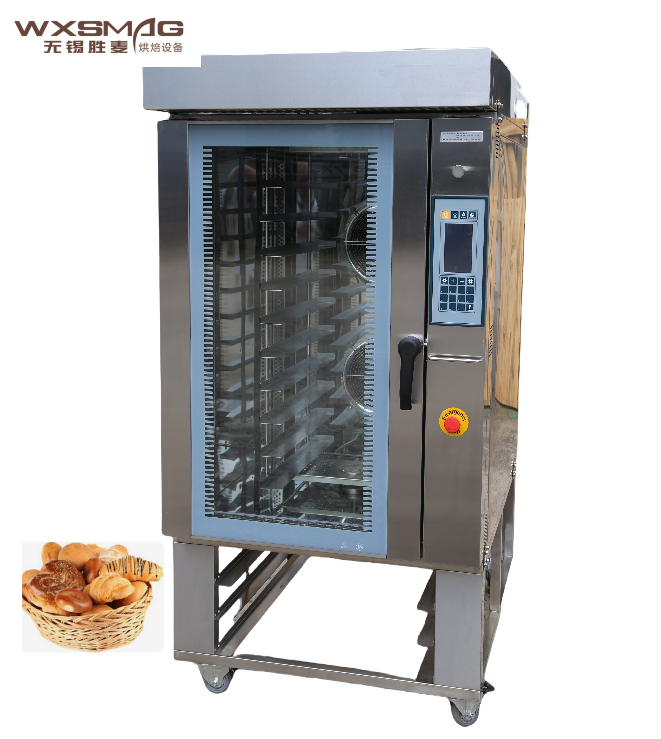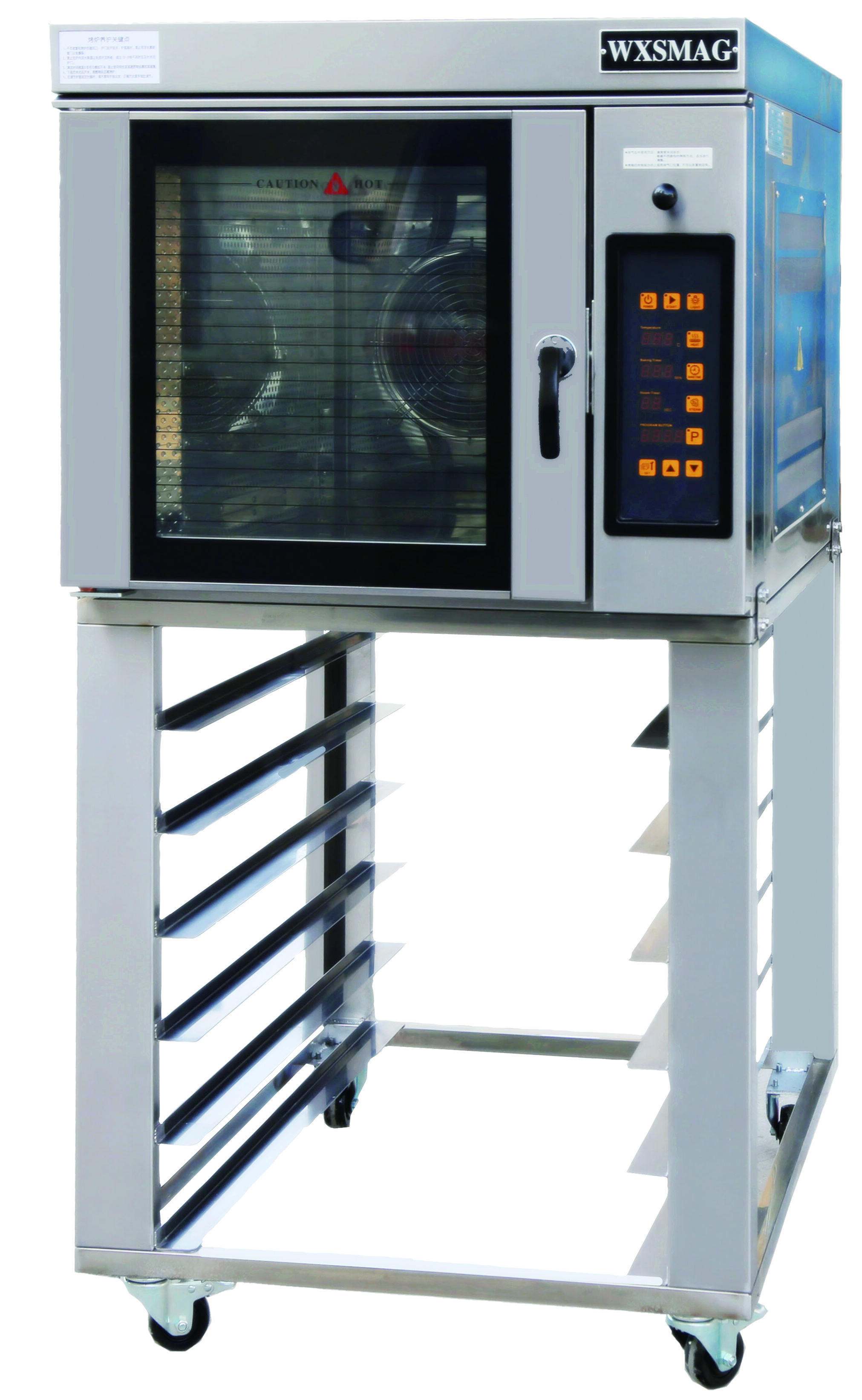Understanding the Complexities of Modern Convection Ovens
Convection ovens have revolutionized home cooking with their efficient and even heating capabilities. However, like any sophisticated appliance, these ovens can present various challenges that may affect their performance and cooking results. Understanding common convection oven issues and knowing how to address them is crucial for maintaining optimal functionality and enjoying consistent cooking outcomes.
Many home cooks and professional chefs alike have experienced moments of frustration when their convection oven doesn't perform as expected. From temperature inconsistencies to unusual noises, these issues can impact your culinary creations and daily cooking routine. The good news is that most convection oven issues have straightforward solutions that you can implement yourself.
Temperature and Heating Problems
Uneven Heating Distribution
One of the most frequent convection oven issues involves uneven heating distribution. While convection ovens are designed to circulate hot air uniformly, problems with the fan or improper rack positioning can lead to inconsistent cooking results. To address this, ensure that your oven racks are properly positioned and that you're not overcrowding the oven with too many dishes. Leave adequate space between baking sheets and the oven walls to allow for proper air circulation.
Regular maintenance of the convection fan system can help prevent uneven heating. Clean the fan blades periodically and check that nothing is obstructing their movement. If the problem persists, the fan motor might need professional attention.
Temperature Calibration Concerns
Incorrect temperature readings can severely impact your cooking results. When your convection oven consistently produces undercooked or overcooked food despite following recipes precisely, it might need recalibration. Modern convection ovens typically have a built-in calibration feature that allows you to adjust the temperature settings. Consult your owner's manual for specific instructions on how to recalibrate your model.
Using an oven thermometer is an excellent way to verify if your oven's temperature display is accurate. Place the thermometer in different areas of the oven to check for consistent readings. If significant variations exist, professional calibration may be necessary.
Mechanical and Technical Difficulties
Fan-Related Problems
The convection fan is the heart of your oven's operation, and any issues with it can significantly impact performance. Common convection oven issues related to the fan include unusual noises, intermittent operation, or complete failure. If you notice grinding or scraping sounds, immediately turn off the oven and check for any visible obstructions around the fan housing.
Regular cleaning and maintenance can prevent many fan-related problems. However, if the fan fails to operate or makes unusual sounds despite cleaning, professional repair may be necessary. The fan motor or bearings might need replacement, which requires technical expertise.
Door Seal Deterioration
A proper door seal is crucial for maintaining consistent temperature and efficient operation. When the door seal deteriorates, it can lead to heat loss, increased energy consumption, and poor cooking results. Inspect the door seal regularly for signs of wear, damage, or food debris accumulation. Clean the seal with warm, soapy water and ensure it's completely dry before closing the oven door.
If you notice gaps between the door and the oven frame or feel cold air escaping, the seal likely needs replacement. This is a relatively simple repair that can significantly improve your oven's performance and energy efficiency.
Operational and Performance Issues
Control Panel Malfunctions
Modern convection ovens feature sophisticated control panels that can sometimes malfunction. Common issues include unresponsive buttons, display errors, or complete panel failure. Before assuming the worst, try resetting the oven by disconnecting it from power for a few minutes. This simple step can often resolve minor electronic glitches.
Keep the control panel clean and free from moisture, as liquid damage is a common cause of malfunction. If problems persist after cleaning and resetting, consult a qualified technician, as the control board might need replacement.

Energy Efficiency Concerns
When convection ovens operate inefficiently, they consume more energy and may not perform optimally. Regular maintenance plays a crucial role in maintaining energy efficiency. Clean the oven interior regularly, check and replace door seals as needed, and ensure all components are working correctly. Consider scheduling annual professional maintenance to keep your oven operating at peak efficiency.
Monitor your energy bills for unusual spikes that might indicate your oven is working harder than necessary. Modern convection ovens are designed to be energy-efficient, so significant increases in energy consumption could signal underlying issues that need attention.
Preventive Maintenance and Care
Regular Cleaning Protocols
Establishing a regular cleaning routine is essential for preventing many common convection oven issues. Clean spills immediately to prevent baked-on residue, which can affect performance and create unpleasant odors. Use appropriate cleaning products designed for convection ovens, and avoid harsh abrasives that could damage the interior surfaces.
Pay special attention to the fan assembly, heating elements, and door seals during cleaning. Remove racks and clean them separately to ensure thorough coverage. Regular cleaning not only prevents problems but also extends the life of your appliance.
Professional Maintenance Schedule
While many convection oven issues can be prevented through proper care and maintenance, professional service plays a vital role in long-term reliability. Schedule annual inspections with qualified technicians who can identify potential problems before they become serious. Professional maintenance typically includes thorough cleaning, component testing, and calibration checks.
Keep detailed records of maintenance and repairs to track your oven's performance history. This information can be valuable for identifying patterns and preventing future issues.
Frequently Asked Questions
How often should I clean my convection oven?
For optimal performance, clean your convection oven at least monthly, with immediate attention to spills and food debris. Heavy users should consider more frequent cleaning schedules. The fan and heating elements should be inspected and cleaned every three months.
Why does my convection oven cook unevenly?
Uneven cooking usually results from improper air circulation, often caused by overcrowding, blocked fan vents, or incorrect rack positioning. Ensure proper spacing between dishes, clean fan components regularly, and verify that nothing is blocking the air circulation system.
When should I call a professional for convection oven repairs?
Contact a professional if you experience electrical issues, persistent temperature problems, mechanical failures, or any safety concerns. Also, seek professional help if basic troubleshooting steps don't resolve the issue or if your oven is still under warranty to avoid voiding the coverage.
How long should a convection oven last with proper maintenance?
With regular maintenance and proper care, a quality convection oven should last 10-15 years. However, lifespan can vary based on usage patterns, maintenance consistency, and the original quality of the appliance.

